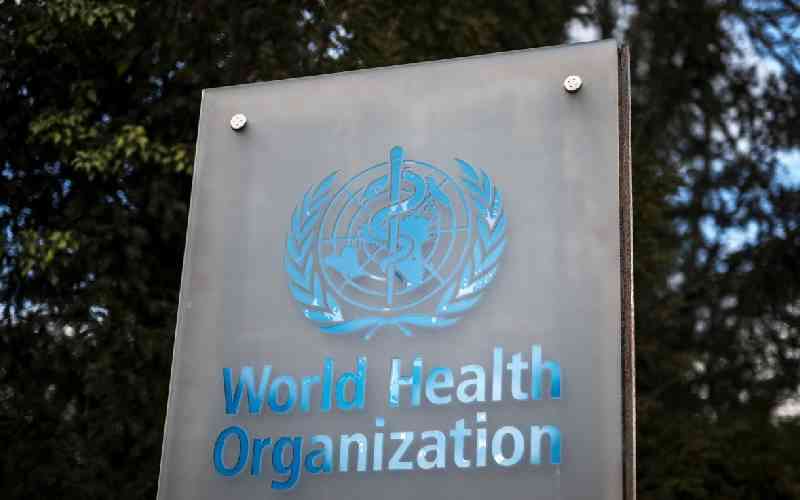
Samples of traditional chewing tobaccos have been found to be contaminated with heroin, marijuana and other illicit drugs. [Courtesy]
Consumers of tobacco and harmful oral stimulants are exposing themselves to cancer and heart-related diseases, a report has revealed.
A research by the University of Nairobi School of Medicine titled “Review of the risks and toxicants of smokeless tobacco, areca nut and khat products” states that one in five who men use tobacco in Kenya expose themselves to multiple cancers and cardiovascular diseases.
This is the first major analysis of the health risks of traditional tobacco and oral stimulants in Kenya where there are low-risk alternatives available in the market.
The research findings further indicate that 4.1 percent of adults use khat and 3.6 percent of adults use chewing tobacco, snuff, pan, or gutkha.
“These products are potentially high risk to physical health with little or no quality control in terms of levels of toxicants or psychoactive ingredients,” reads the study in part.
Samples of traditional chewing tobaccos have been found to be contaminated with heroin, marijuana and other illicit drugs.
The study showed that “modern tobacco-free nicotine products, like pouches and nicotine replacement therapies, expose users to lower levels of toxicants and are therefore comparatively less risky.”
Dr Michael Kariuki, the report’s lead researcher, explained that the research compared the risk profile of traditional tobacco and different oral stimulants used by Kenyans that are available through legal and illegal channels
“We found that users who choose modern and science-backed tobacco-free nicotine products like, pouches and nicotine replacement therapies, had the lowest exposure risk to cancer-causing chemicals,” he said.
According to him, the high use of traditional tobacco and unregulated oral stimulants in Kenya that have little or no quality control in terms of levels of toxicants or psychoactive ingredients is very worrying.
“While there are modern, less risky and regulated alternatives available on the market, transition to these products is unfortunately very slow,” the expert said.

Cured tobacco at a farm in Dago, Uriri sub-county, Migori. January 21, 2021. [Caleb Kingwara, Standard]
His research shows that the risk profile of modern tobacco-free nicotine products was found to be significantly lower than other traditional tobacco and oral products.
Well-known carcinogenic toxicants such as aflatoxins are not detectable in modern tobacco-free nicotine products.
The research also found that 0.7 percent of men and 0.1 percent of women cigarette smokers use smokeless tobacco products — which is an insignificant number.
However, 7.7 percent of Kenyans are using unregulated products that pose a high risk to their health.
The report says there is need for more research into the different risk profiles for these products and the impact they have on communities.
According to World Health Organisation (WHO), there are 28 carcinogens or toxicants in smokeless tobacco products. There are no “lists” of toxicants for areca nut or khat products, but areca nut contains a possible human carcinogen.
Dr Kariuki explained that rather than being a source of harm like traditional tobacco and oral products, modern tobacco-free nicotine alternatives have the opportunity to reduce smoking-related ailments.
“It’s important that current and future regulatory frameworks recognise that these products are comparatively low risk,” Dr Kariuki said.
He further recommended an in-depth review of quantities and types of imported and locally produced smokeless tobacco, areca nut and khat products in the Kenyan market.
His report has also recommended initiating case-control studies to determine health risks from the use of such products.
Joseph Magero, an official at Tobacco Harm Reduction Kenya, said we should be making much greater efforts to encourage Kenyans to use lower-risk products, such as tobacco-free nicotine pouches.
According to him, not only do they reduce consumers’ exposure to cancer-causing chemicals but also provide a viable alternative to the millions of tobacco users in our country.
Tobacco nicotine-free products have been shown to be relatively safe, with no evidence of lung, gastrointestinal or oral cancer.
 The Standard Group Plc is a multi-media organization with investments in media
platforms spanning newspaper print
operations, television, radio broadcasting, digital and online services. The
Standard Group is recognized as a
leading multi-media house in Kenya with a key influence in matters of national
and international interest.
The Standard Group Plc is a multi-media organization with investments in media
platforms spanning newspaper print
operations, television, radio broadcasting, digital and online services. The
Standard Group is recognized as a
leading multi-media house in Kenya with a key influence in matters of national
and international interest.











